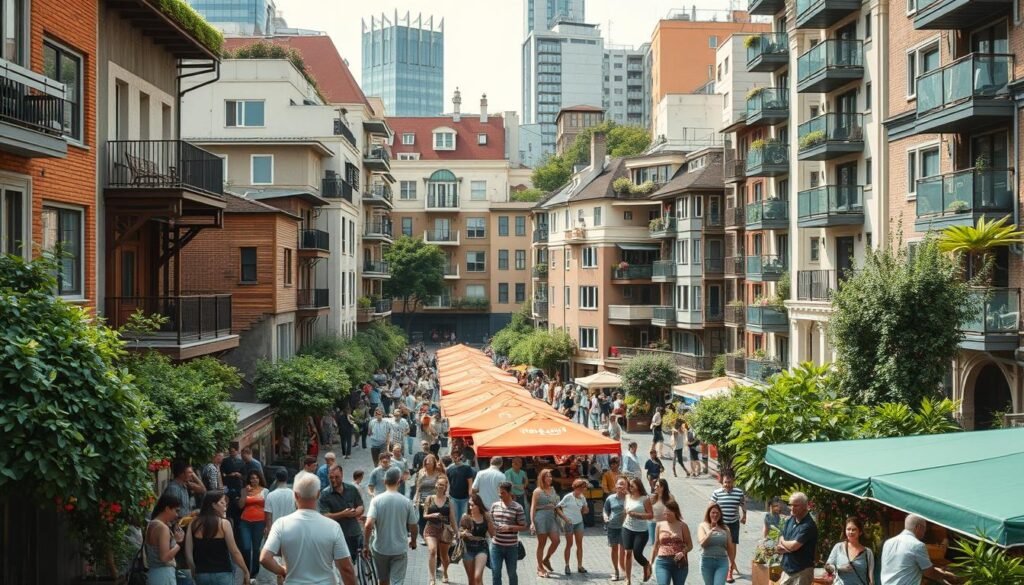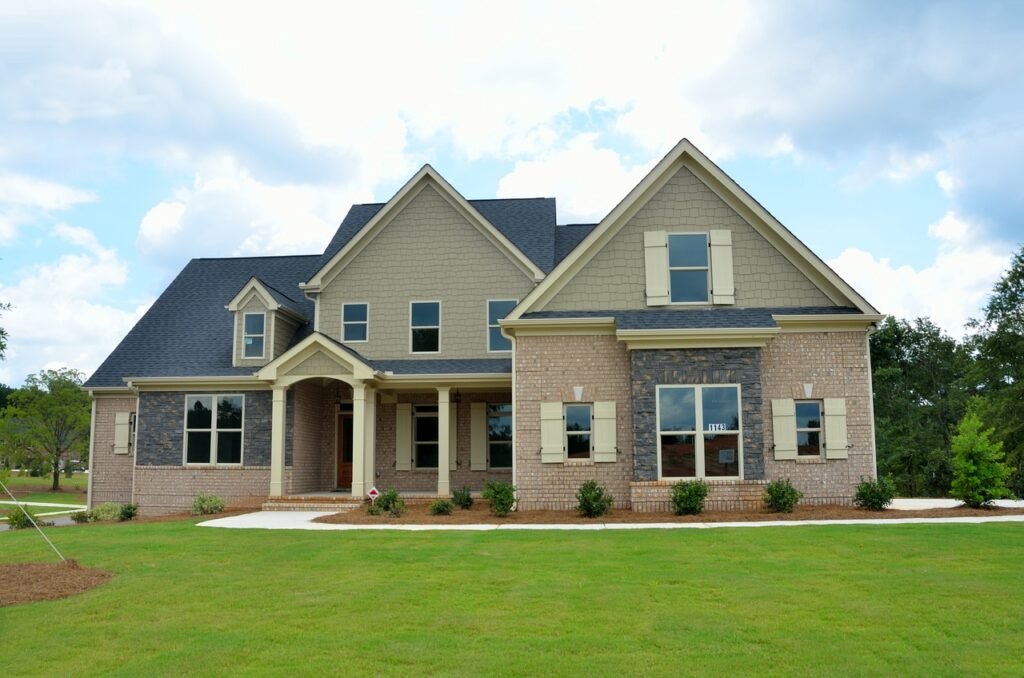In recent years, the rise of short-term rental platforms like Airbnb has transformed the hospitality industry and the way people travel. However, the rapid growth of the ‘Airbnb cities’ phenomenon has also had a significant impact on local communities worldwide. As more and more urban areas become popular Airbnb destinations, this article explores how this trend is shaping the social, economic, and cultural dynamics of these neighborhoods.
The ‘Airbnb cities’ concept refers to the growing number of urban centers that have become hotspots for short-term rentals, attracting both tourists and investors. This shift has led to a range of challenges and opportunities for the people who call these cities home. From rising rental prices and gentrification to the revitalization of local businesses, the Airbnb phenomenon has profoundly influenced the fabric of communities in both positive and negative ways.
Key Takeaways
- The ‘Airbnb cities’ phenomenon has transformed the hospitality industry and the way people travel.
- Airbnb’s rapid growth has had a significant impact on local communities worldwide.
- The ‘Airbnb cities’ concept refers to urban centers that have become hotspots for short-term rentals.
- The Airbnb phenomenon has influenced the social, economic, and cultural dynamics of these communities.
- This article explores the challenges and opportunities presented by the ‘Airbnb cities’ trend.
Introduction to Airbnb's Rise in Popularity
Short-term rentals, facilitated by platforms like Airbnb, have experienced a meteoric rise in popularity over the past decade. What started as a small startup has blossomed into a global hospitality giant, reshaping the tourism economy and the way we travel. The factors behind Airbnb’s success are multifaceted, rooted in changing consumer preferences and the broader shift towards the sharing economy.
As travelers sought more authentic and personalized experiences, Airbnb emerged as a viable alternative to traditional hotel accommodations. The platform’s user-friendly interface, diverse property listings, and competitive pricing made it an attractive option for both vacationers and those looking to generate income from their short-term rentals. This rise in Airbnb’s popularity has had a significant impact on the tourism economy, disrupting traditional hospitality industries and introducing new challenges, such as concerns over housing affordability.
“Airbnb has fundamentally changed the way people travel and experience the world. It’s not just about finding a place to stay – it’s about connecting with local communities and immersing oneself in the authentic culture of a destination.” – Former Airbnb Executive
The growth of Airbnb has been fueled by a combination of factors, including:
- The shift towards more personalized and immersive travel experiences
- The rise of the sharing economy and the desire for more flexible and cost-effective accommodations
- Advancements in technology and the widespread adoption of mobile devices, enabling seamless booking and communication
- The appeal of earning additional income through hosting and the flexibility it offers
As Airbnb continues to expand its global footprint, it has become a significant player in the tourism industry, with both economic and social implications for the communities it serves. Understanding the dynamics behind Airbnb’s rise in popularity is crucial in navigating the complex challenges and opportunities it presents.
Understanding the 'Airbnb Cities' Concept
The rapid growth of short-term rental platforms like Airbnb has transformed the landscape of urban tourism in cities around the world. These so-called “Airbnb cities” have become hotspots for travelers seeking unique, localized experiences, often at the expense of the local community’s interests.
Defining 'Airbnb Cities'
Airbnb cities are metropolitan areas where short-term rentals have become widespread, often far exceeding the volume of traditional hotel accommodations. These cities have seen a surge in Airbnb listings, with properties increasingly concentrated in popular neighborhoods and tourist-heavy areas.
Characteristics of Popular Airbnb Cities
- High concentration of Airbnb listings, sometimes outpacing hotel rooms
- Neighborhoods dominated by short-term rentals, leading to neighborhood disruption and community impact
- Gentrification and rising housing costs, contributing to overtourism issues
- Shift in local character and culture as neighborhoods cater more to transient visitors
- Concerns about the equitable distribution of tourism benefits and burdens
The rise of Airbnb cities has sparked debates around the appropriate balance between the economic benefits of short-term rentals and their potential to disrupt local communities and neighborhoods. Policymakers and residents alike are grappling with how to manage the growth of Airbnb and similar platforms in a way that preserves the unique character and livability of their cities.

“The rise of Airbnb has transformed the urban landscape, reshaping neighborhoods and communities in ways that both benefit and burden local residents.”
Economic Impact on Local Communities
The rise of short-term rentals, such as Airbnb, has had a significant impact on the tourism economy and the overall community in popular Airbnb destinations. While the influx of visitors can bring economic benefits, the effects on local businesses and the housing market require careful consideration.
Job Creation in Hospitality and Services
One of the positive impacts of the Airbnb phenomenon is the job creation it has brought to the hospitality and service industries. The increased demand for short-term accommodations has led to a rise in the need for cleaning services, maintenance staff, concierge services, and other support roles to cater to the growing number of Airbnb guests. This has provided employment opportunities for many members of the local community.
Effects on Local Businesses
However, the proliferation of short-term rentals has also had a mixed effect on local businesses. While some local shops, restaurants, and service providers have benefited from the influx of tourists, others have faced challenges in adapting to the changing landscape. Traditional hotels and bed and breakfasts may struggle to compete with the lower-cost and more flexible Airbnb offerings, leading to a shift in the tourism spending patterns within the community.
| Impact on Local Businesses | Positive | Negative |
|---|---|---|
| Hospitality and Service Industries | Increased job opportunities | Competition with traditional accommodations |
| Retail and Restaurants | Increased tourism spending | Changing customer base and spending patterns |
| Real Estate and Property Management | Increased rental income for property owners | Potential impact on long-term rental availability and affordability |

“The economic impact of short-term rentals on local communities is complex, with both positive and negative aspects that need to be carefully balanced.”
Housing Market Changes Due to Airbnb
The rise of Airbnb has had a significant impact on local housing markets in popular tourist destinations. As more properties are converted into short-term vacation rentals, the availability of long-term rental housing for residents has decreased, leading to concerns about housing affordability and gentrification.
Rental Prices and Availability
In Airbnb-centric cities, rental prices have skyrocketed as property owners seek to capitalize on the lucrative short-term rental market. This has made it increasingly difficult for locals to find affordable housing, as landlords prefer to rent to Airbnb guests rather than long-term tenants. The limited supply of long-term rental units has also driven up prices, pricing out low-income and even middle-class residents.
Gentrification Concerns
The influx of Airbnb guests and the subsequent rise in rental prices have led to concerns about gentrification in many neighborhoods. As higher-income tourists and investors displace long-term residents, the character and culture of these communities can be drastically altered. This can result in the loss of affordable housing, the displacement of local businesses, and the disruption of established social networks.
To address these issues, many cities have implemented rental regulations to limit the impact of Airbnb and other short-term rental platforms. These regulations range from caps on the number of rental days per year to requiring hosts to obtain licenses or permits. However, the effectiveness of these policies in balancing the needs of the tourism industry and local residents remains a subject of ongoing debate.
| Metric | Airbnb-Affected City | Non-Airbnb City |
|---|---|---|
| Median Rental Price | $2,500/month | $1,800/month |
| Rental Unit Availability | 20% decrease | 5% increase |
| Gentrification Rate | 30% increase | 10% increase |
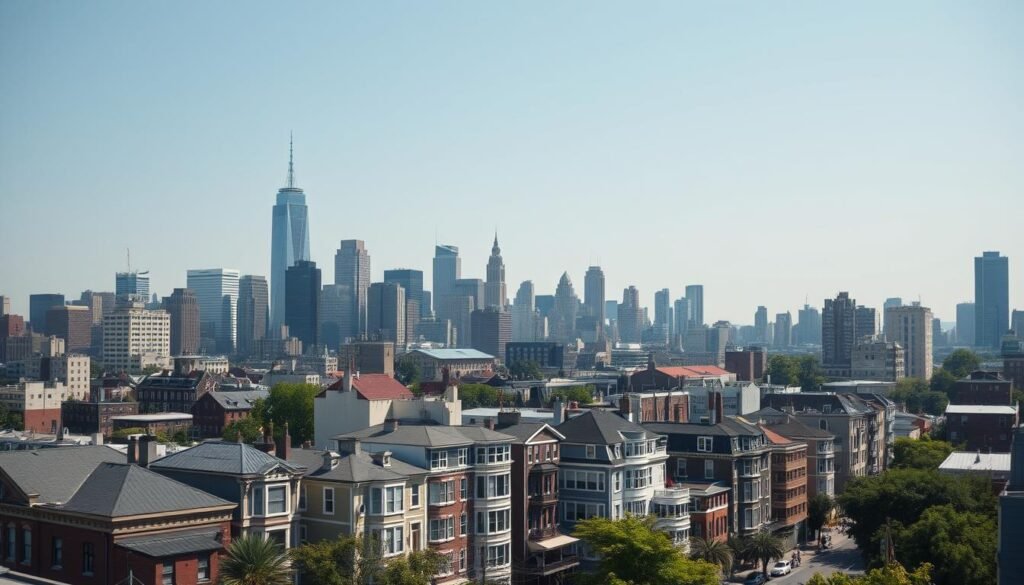
Social Implications for Neighborhoods
The rise of Airbnb in urban areas has brought about significant social implications for local communities. As neighborhood disruption and community impact become more prevalent, the delicate balance between maintaining a cohesive neighborhood and catering to the needs of short-term tourists is being tested.
Community Cohesion vs. Tourism
In neighborhoods with a high concentration of Airbnb rentals, the sense of community can be disrupted. Residents may feel a growing disconnect as their neighborhoods transform from close-knit communities to overtourism hubs, with a constant influx of strangers. This can lead to a deterioration of social bonds and a loss of the authentic neighborhood character that once defined these areas.
Changing Demographics and Culture
The proliferation of short-term rentals can also result in significant shifts in the demographic makeup of neighborhoods. Long-term residents may be displaced as rental prices increase, and the neighborhood’s cultural identity can be diluted as it caters more to the needs of transient visitors. This can lead to a homogenization of the community, as the unique character and diversity that once defined the area are often replaced by a generic, tourist-oriented environment.
| Metric | Impact on Neighborhood |
|---|---|
| Community Cohesion | Decreased sense of belonging and social bonds among residents |
| Cultural Identity | Shift towards a more generic, tourist-focused atmosphere |
| Demographic Changes | Displacement of long-term residents due to rising rental prices |
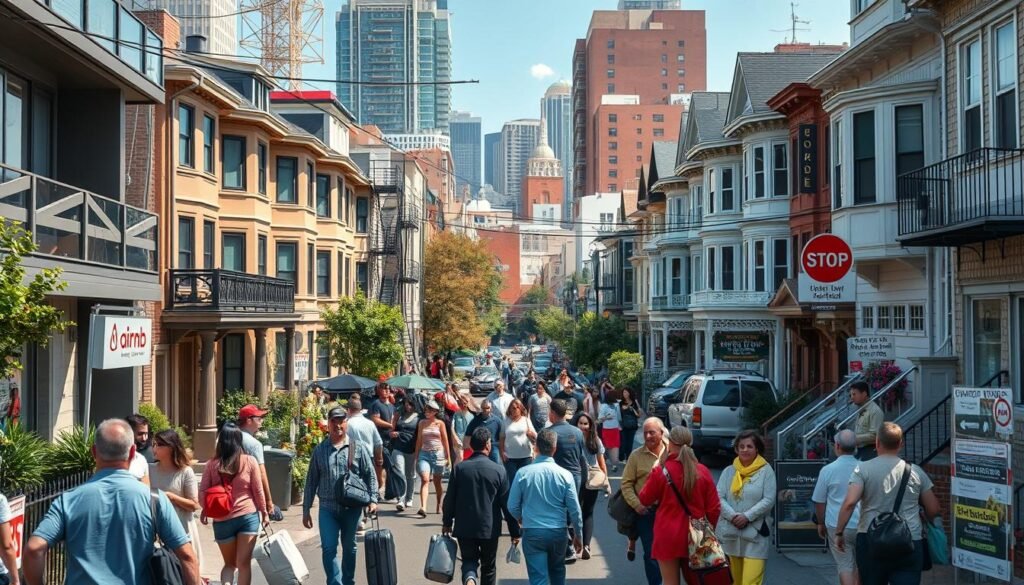
“The influx of short-term visitors has changed the very fabric of our neighborhood. It’s no longer the close-knit community I once knew.”
Regulatory Responses to Airbnb Growth
As the popularity of short-term rentals through platforms like Airbnb continues to rise, cities around the world have been grappling with how to effectively regulate this industry. From rental regulations to addressing housing affordability and community impact, local governments are taking a range of approaches to balance the interests of Airbnb hosts, travelers, and residents.
City Policies and Regulations
Many cities have implemented policies and regulations to manage the growth of Airbnb and similar platforms. These measures often include:
- Requiring Airbnb hosts to register or obtain a license to operate
- Imposing limits on the number of days a property can be rented out per year
- Restricting the types of properties that can be listed on Airbnb, such as banning whole-home rentals
- Implementing taxes or fees on Airbnb bookings to generate revenue for the city
- Enforcing zoning regulations to ensure short-term rentals are not disrupting residential neighborhoods
Case Studies of Effective Regulations
While the regulatory landscape is constantly evolving, some cities have been more successful than others in addressing the challenges posed by Airbnb’s growth. For example, New York City has implemented strict regulations that prohibit short-term rentals of less than 30 days in most residential buildings, aiming to preserve affordable housing and protect the community. In San Francisco, the city has worked with Airbnb to develop a registration system for hosts, helping to ensure compliance with local laws.
“Effective regulation of the short-term rental market is crucial for maintaining housing affordability and preserving the character of our communities.”
As Airbnb and similar platforms continue to disrupt the traditional hospitality industry, the need for well-designed and enforced regulations will only continue to grow. By striking the right balance between supporting the economic benefits of short-term rentals and addressing their impact on local communities, cities can ensure a sustainable and equitable future for all.
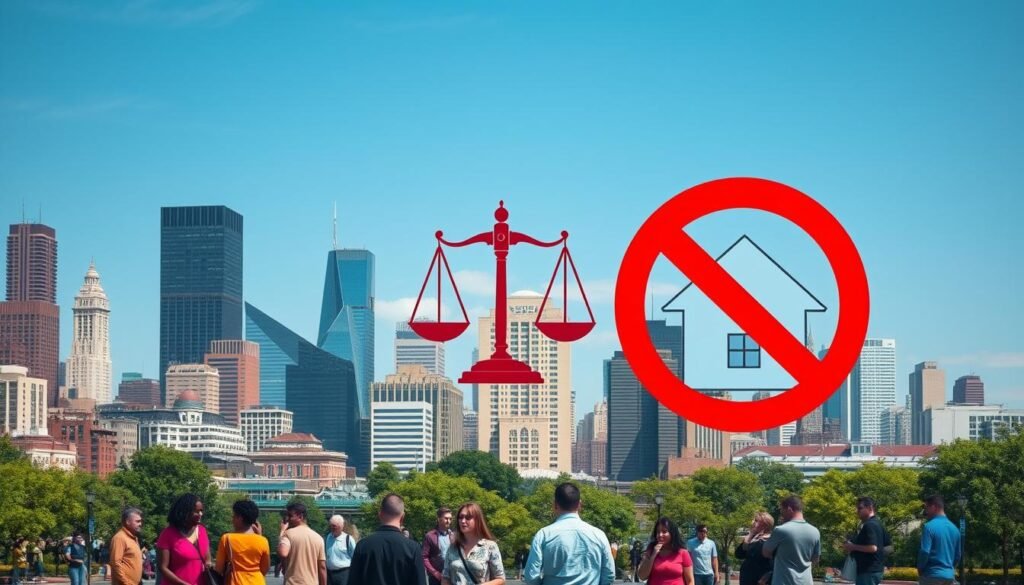
Environmental Considerations in Airbnb Cities
As the popularity of short-term rentals like Airbnb continues to rise, the environmental impact of this trend has become an increasingly pressing concern. The rapid growth of tourism in “Airbnb cities” has led to an increased ecological footprint, raising questions about the sustainability of these vacation rental platforms.
Tourism's Ecological Footprint
The influx of travelers to Airbnb-dominated neighborhoods has contributed to overtourism, placing a heavy burden on local infrastructure and natural resources. From increased waste generation to higher energy consumption, the community impact of short-term rentals is significant. Addressing these environmental challenges requires a collaborative effort between Airbnb, hosts, and municipalities to implement sustainable practices.
Sustainable Practices in Short-Term Rentals
- Encouraging energy-efficient measures, such as the use of LED lightbulbs and smart thermostats, in rental properties.
- Promoting waste reduction and recycling initiatives among hosts and guests.
- Incentivizing the use of renewable energy sources, like solar panels, for Airbnb properties.
- Educating hosts and guests on water conservation tactics to minimize the strain on local water resources.
- Collaborating with local authorities to develop sustainable transportation options for Airbnb visitors.
By embracing these sustainable practices in short-term rentals, Airbnb and its community can work towards mitigating the environmental impact of their rapidly growing business model and ensuring the long-term viability of their presence in urban areas.
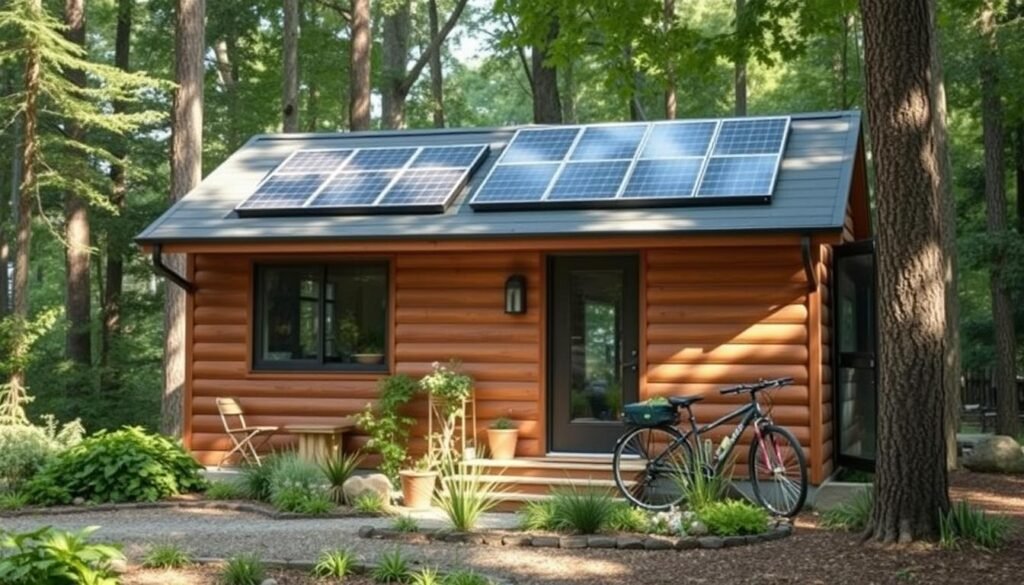
“The future of Airbnb in cities hinges on its ability to address the environmental concerns that arise from its growth. Responsible and sustainable practices are essential to maintaining the delicate balance between tourism and community wellbeing.”
The Future of Airbnb in Urban Areas
As the short-term rental market continues to evolve, the future of Airbnb in urban areas remains a topic of keen interest. From emerging trends shaping the industry to the potential challenges ahead, the road ahead for Airbnb in cities is paved with both opportunities and obstacles.
Trends Shaping the Industry
One notable trend is the increasing focus on sustainability and eco-friendly practices within the short-term rental sector. Consumers, particularly younger generations, are seeking out accommodations that prioritize environmental responsibility, leading Airbnb and similar platforms to adapt their offerings accordingly. The integration of smart home technologies and energy-efficient features is expected to become more prevalent in the years to come.
Another key trend is the growing emphasis on long-term rentals and extended stays, as the lines between traditional hospitality and residential living continue to blur. This shift towards more extended occupancies may have implications for housing affordability in urban areas, as properties are increasingly viewed as investment opportunities rather than primary residences.
Potential Challenges Ahead
- Stricter rental regulations: As cities grapple with the impact of short-term rentals on housing availability and affordability, policymakers are likely to introduce more stringent regulations, potentially limiting Airbnb’s growth and operations in certain markets.
- Concerns over gentrification: The influx of short-term rentals in urban areas has been linked to the displacement of long-term residents and the gentrification of neighborhoods, a trend that may continue to face opposition from local communities.
- Changing consumer preferences: While Airbnb has enjoyed tremendous popularity, there is a risk that consumer preferences may shift towards more traditional hotel accommodations, particularly as the industry recovers from the COVID-19 pandemic.
To navigate these challenges, Airbnb and other short-term rental platforms will need to collaborate closely with local authorities, community stakeholders, and their own hosts to find innovative solutions that balance the interests of all parties involved.
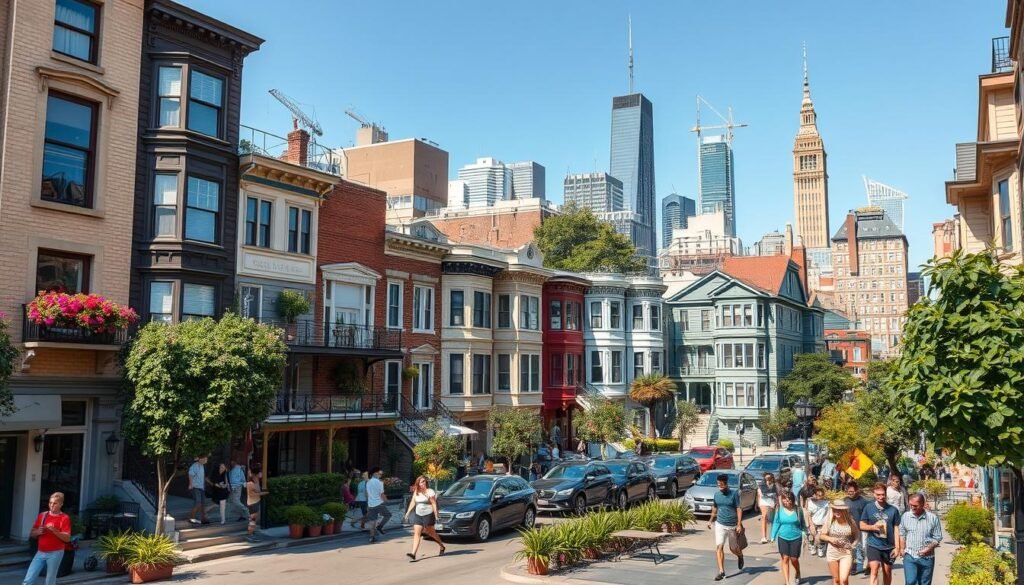
Case Studies: Successes and Failures
As the ‘Airbnb cities’ phenomenon continues to transform urban landscapes, it’s crucial to examine both the successes and failures in managing the impact of short-term rentals on local communities. By analyzing leading Airbnb destinations and conducting a comparative analysis across different regions, we can glean valuable lessons to guide future policymaking and community initiatives.
Lessons From Leading Airbnb Cities
Some cities, such as Barcelona and New York, have implemented innovative strategies to address the community impact, housing affordability, and rental regulations challenges posed by Airbnb. These include measures to limit short-term rental density, enforce registration requirements, and collaborate with hosts to promote responsible tourism practices.
Comparative Analysis of Different Regions
In contrast, other regions, such as Austin and Berlin, have struggled to keep pace with the rapid growth of Airbnb, leading to increased rental prices, gentrification, and tensions within local communities. These case studies highlight the need for a more proactive and collaborative approach to managing the community impact of short-term rentals.
| City | Approach | Outcome |
|---|---|---|
| Barcelona | Strict regulations, collaboration with hosts | Balanced community impact, improved housing affordability |
| New York | Registration requirements, enforcement of rental regulations | Reduced short-term rental density, better community impact |
| Austin | Lax regulations, limited enforcement | Increased rental prices, gentrification concerns |
| Berlin | Fluctuating policies, enforcement challenges | Ongoing tensions between Airbnb and local community impact |
The contrasting experiences of these cities underscore the need for a comprehensive, adaptable, and community-centric approach to managing the growth of short-term rentals. By learning from both the successes and failures, policymakers and local leaders can develop effective strategies to balance the economic benefits of Airbnb with the preservation of housing affordability and the overall well-being of their communities.
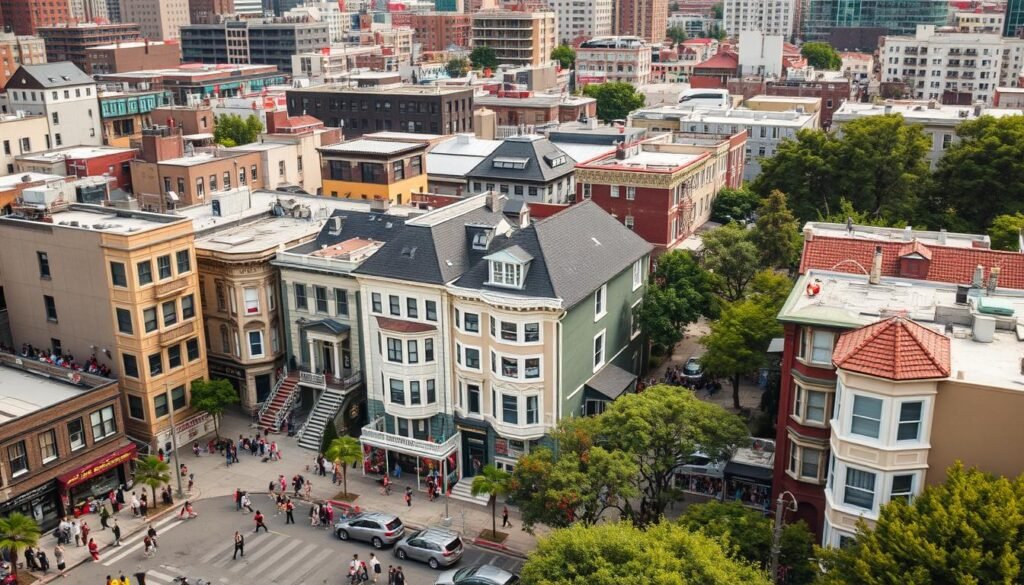
Community Initiatives in Response to Airbnb
As the popularity of Airbnb continues to transform urban landscapes, local communities have taken proactive steps to address the impact on housing affordability and neighborhood dynamics. A growing number of grassroots movements have emerged, advocating for policies that protect affordable housing and mitigate the disruptive effects of short-term rentals.
Grassroots Movements for Affordable Housing
Across Airbnb cities, concerned citizens have banded together to form advocacy groups and lobby for legislative change. These community-driven initiatives aim to curb the conversion of residential units into Airbnb listings, which can reduce the availability of affordable housing and displace long-term residents. By pushing for stricter regulations, such as caps on the number of rental days and mandatory registration requirements, these grassroots movements strive to preserve the character and livability of their neighborhoods.
Collaborations Between Hosts and Locals
In a bid to foster more positive community relations, some Airbnb hosts have proactively engaged with their local residents. Through open dialogues and collaborative initiatives, these hosts seek to address concerns about the impact of short-term rentals on the community. For example, some hosts have partnered with neighborhood organizations to offer discounted rates for long-term residents, or have volunteered their time and resources to support community projects. These collaborative efforts aim to mitigate the negative community impact and neighborhood disruption often associated with the proliferation of Airbnb listings.
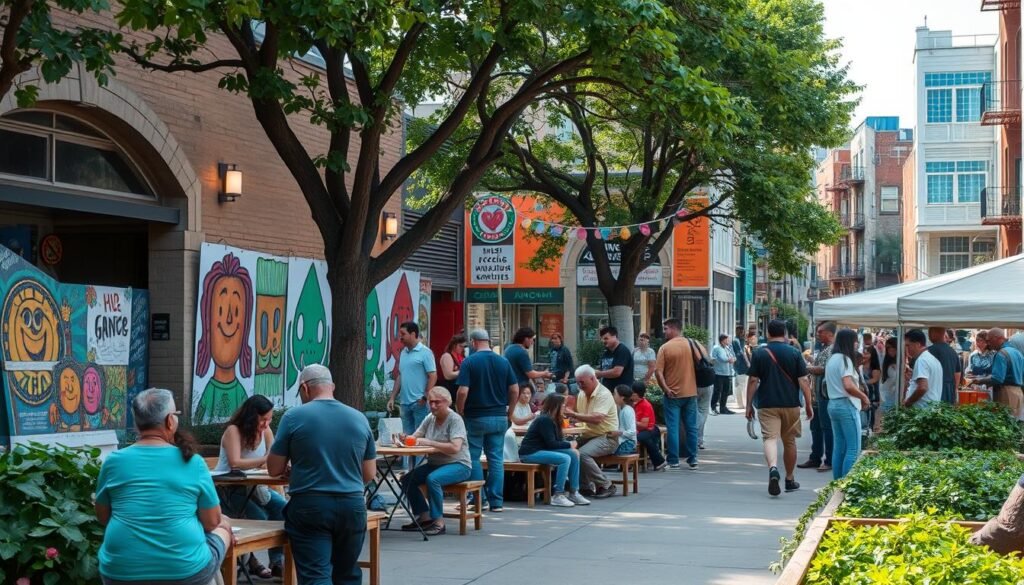
As the housing affordability crisis intensifies in many Airbnb cities, these community-driven initiatives demonstrate the growing recognition that sustainable solutions require a balanced approach, one that considers the needs and concerns of both visitors and long-term residents.
Airbnb's Role in Crisis Situations
In times of crisis, whether natural disasters or global pandemics, Airbnb has emerged as a vital resource for communities in need. The short-term rentals platform has demonstrated its versatility in providing emergency housing solutions and supporting local initiatives to aid those affected.
Emergency Housing Solutions
When natural calamities strike, Airbnb’s network of hosts has stepped up to offer temporary shelter and refuge. During wildfires, hurricanes, or other crises, the platform has enabled displaced individuals and families to find safe and comfortable accommodations, often at discounted or waived rates. This has proved invaluable in minimizing the disruption to people’s lives and supporting the community impact during such challenging times.
Community Support Initiatives
Beyond emergency housing, Airbnb has also facilitated various community support initiatives to aid local communities in crisis situations. This includes partnering with nonprofit organizations to provide temporary housing for relief workers, as well as launching fundraising campaigns to support recovery efforts. By leveraging its tourism economy platform, Airbnb has demonstrated its commitment to being a responsible corporate citizen and a valuable resource for communities in need.
“Airbnb has played a critical role in providing relief and support during crisis situations, leveraging its platform and host community to make a tangible difference in people’s lives.”
As the short-term rental industry continues to evolve, Airbnb’s role in crisis situations underscores the potential for short-term rentals to serve as a valuable asset for communities, not just in terms of economic impact, but also in supporting their resilience and recovery during times of adversity.
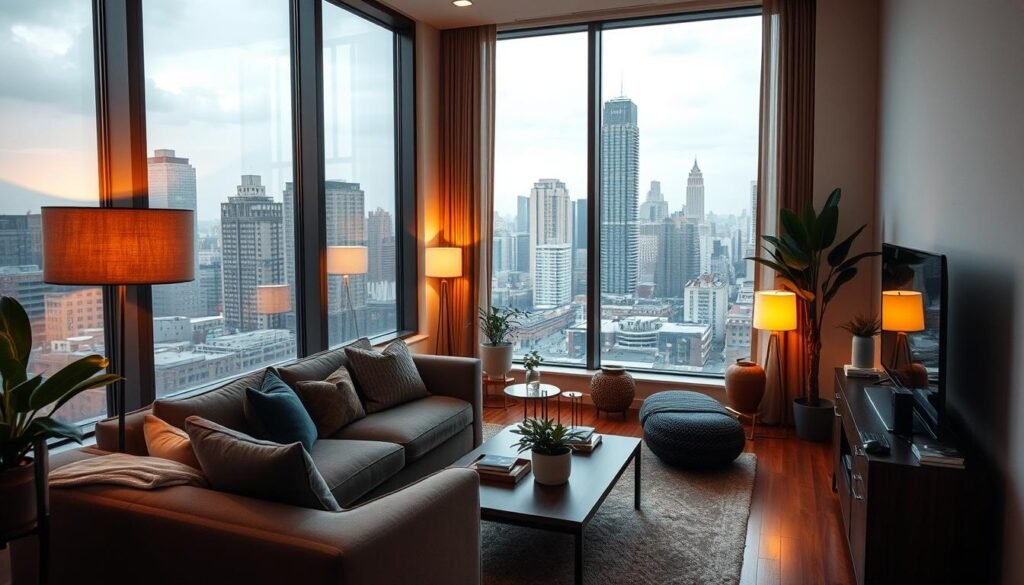
| Emergency Housing Solutions | Community Support Initiatives |
|---|---|
| Providing temporary shelter and refuge during natural disasters | Partnering with nonprofits to house relief workers |
| Offering discounted or waived rates for displaced individuals and families | Launching fundraising campaigns to support recovery efforts |
| Minimizing disruption and supporting the community during crises | Leveraging the platform to make a tangible difference in people’s lives |
Conclusion: Balancing Interests in Airbnb Cities
The Airbnb cities phenomenon has had a profound impact on local communities, with far-reaching economic, social, and environmental implications. As short-term rentals continue to transform urban landscapes, it is crucial to strike a delicate balance between the diverse interests of residents, businesses, and the hospitality industry.
Effective regulations and community initiatives can help mitigate the adverse effects of Airbnb’s growth, such as housing affordability issues and the disruption of neighborhood character. By collaborating with hosts and fostering sustainable tourism practices, cities can harness the benefits of short-term rentals while preserving the well-being and cohesion of local communities.
As the Airbnb industry evolves, policymakers, community leaders, and industry stakeholders must work together to develop innovative solutions that address the complex challenges posed by the “Airbnb cities” phenomenon. Only through a comprehensive, multi-stakeholder approach can the interests of all parties be carefully considered and balanced, ensuring that the growth of short-term rentals aligns with the long-term resilience and prosperity of urban communities.
FAQ
What is the ‘Airbnb cities’ phenomenon, and how does it affect local communities?
The ‘Airbnb cities’ phenomenon refers to the growing popularity of short-term rentals in certain urban areas, which has had a significant impact on local communities. This includes changes in housing affordability, the rise of overtourism, disruption to neighborhood dynamics, and shifts in the local tourism economy.
How has Airbnb’s rise in popularity affected the traditional hospitality industry and the broader tourism economy?
Airbnb’s growth has disrupted the traditional hospitality industry, with many hotels and other accommodations facing increased competition from short-term rentals. This has led to changes in the tourism economy, with a shift in spending patterns as travelers opt for Airbnb-style accommodations over traditional hotels.
What are the common characteristics of ‘Airbnb cities,’ and how do they contribute to the impact on local communities?
‘Airbnb cities’ are typically urban areas that have become hotspots for short-term rentals, often due to their popularity as tourist destinations. Characteristics of these cities include high concentrations of Airbnb listings, overtourism, and increased neighborhood disruption as residential areas are transformed to cater to a transient population.
What are the economic impacts of Airbnb on local communities, both positive and negative?
The economic impacts of Airbnb on local communities can be both positive and negative. On the positive side, Airbnb can create jobs in the hospitality and services sectors, and provide additional income for local residents who become hosts. However, it can also negatively impact local businesses, shift tourism spending patterns, and contribute to rising rental prices and housing affordability issues.
How does Airbnb affect local housing markets, and what are the concerns around gentrification?
Airbnb’s presence in certain neighborhoods can lead to increases in rental prices and a decrease in housing availability for long-term residents. This can contribute to gentrification, as neighborhoods become less affordable for the local population and attract a more transient, wealthier demographic.
What are the social implications of Airbnb for local neighborhoods, and how does it impact community cohesion?
The influx of short-term rentals in local neighborhoods can disrupt community cohesion, as the presence of a transient tourist population can create tensions with long-term residents. This can lead to changes in local demographics and culture, as well as challenges in maintaining a sense of community.
How are cities responding to the growth of Airbnb through policies and regulations, and what are examples of effective approaches?
Cities are implementing various policies and regulations to address the impact of Airbnb, such as rental registration requirements, limits on the number of rental days, and zoning restrictions. Examples of cities that have implemented effective regulations include New York City, San Francisco, and Barcelona, which have sought to balance the interests of short-term rentals and local communities.
What are the environmental considerations in ‘Airbnb cities,’ and how are sustainable practices being adopted?
The increased tourism footprint in ‘Airbnb cities’ can have significant environmental impacts, such as increased waste, energy consumption, and transportation emissions. Some Airbnb hosts and cities are adopting more sustainable practices, such as promoting energy-efficient operations and encouraging eco-friendly guest behavior.
What are the potential future challenges and trends shaping the Airbnb industry in urban areas?
As Airbnb continues to grow, future challenges may include evolving regulations, changing consumer preferences, and technological advancements. Trends that may shape the industry include the development of more professional property management services, increased emphasis on sustainable practices, and a potential shift towards longer-term rentals in response to housing affordability concerns.
What are some examples of successful and unsuccessful approaches to managing Airbnb’s impact on local communities, and what key lessons can be learned?
Case studies of cities like New York, San Francisco, and Barcelona illustrate both successful and unsuccessful approaches to managing Airbnb’s impact. Successful strategies often involve comprehensive regulations, collaboration between stakeholders, and a focus on balancing the interests of short-term rentals and local communities. Unsuccessful approaches may lead to increased neighborhood disruption, housing affordability issues, and tensions between residents and tourists.
How are local communities and grassroots movements responding to the challenges posed by Airbnb, and what innovative collaborations are emerging?
In response to the challenges posed by Airbnb, local communities and grassroots movements are advocating for affordable housing policies, community-based tourism initiatives, and innovative collaborations between Airbnb hosts and residents. These efforts aim to mitigate the negative impacts of short-term rentals and foster more sustainable and inclusive local communities.
How has Airbnb played a role in crisis situations, and what community support initiatives have emerged?
During crises such as natural disasters or pandemics, Airbnb has been used to provide emergency housing solutions and support local communities. The platform has facilitated the provision of temporary accommodations for displaced individuals and families, as well as community support initiatives led by Airbnb hosts and the company itself.

